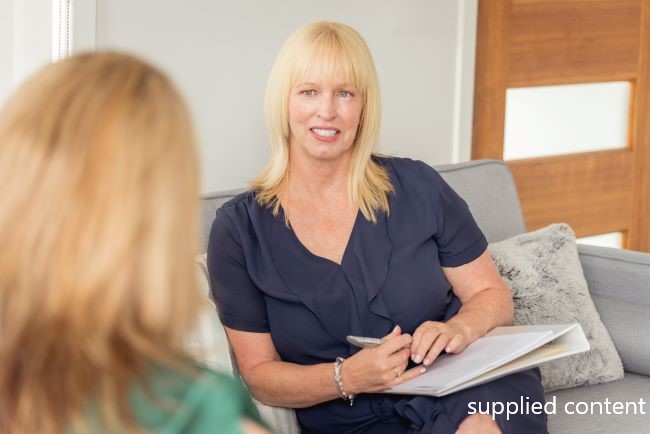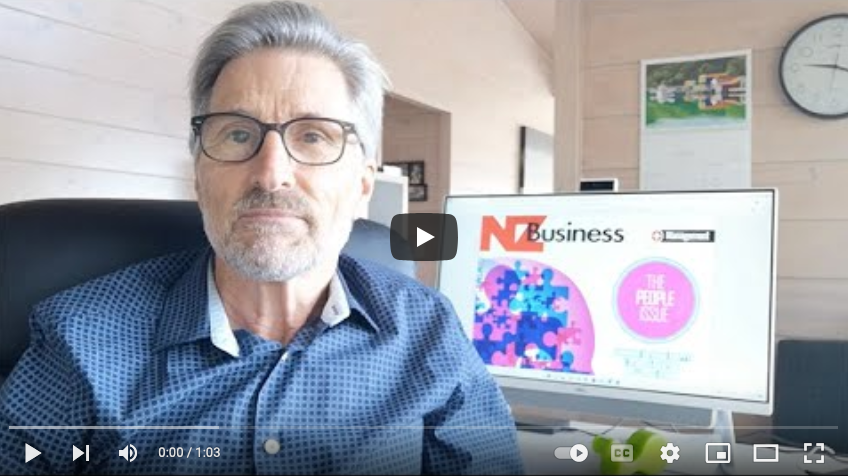The ultimate learning experience
Kevin Kevany reviews the MBA landscape for 2009 and determines that deciding on where, when and why to do your MBA could be the hardest part of the exercise.
Ever since the University of Chicago Graduate School of Business first offered working professionals its Executive MBA (EMBA) programme in 1940, this “delayed degree” has grown to the point where it is today offered by most business schools around the world. It nevertheless remains one of the more controversial degrees in the educational world: you are either for it or against. Those “against” remain largely those curmudgeonly, self-made men – and they usually are men, said – with no blasphemy intended – to “adore their own creator”. They growl and rage at a world-gone-soft, from their eyries on the top floor of CBD towers, before sipping a port with fellow non-believers and cackling at their own definition : “Means B…. All”. Those “for” would unquestionably outnumber and out-manoeuvre their opponents with a telling argument, very similar to that of Graham Gaylard, who started his working life as an electrician for Fonterra, and via a BSc and a Waikato Management School MBA, with Honours, has gone on to become a top techno entrepreneur. “The knowledge I gained from the finance paper alone, paid for the whole MBA course within the first year of graduation,” he says. A tough retort for the old fellas to refute, especially since it is ‘bottom-line’ related too. No doubt they would eventually respond (once the port was finished) with the somewhat qualified acceptance that it would really depend on which business school had bestowed the degree. And that is where so many factors come into play; some of which we’ll cover in this article and some of which you’ll have to largely trust your own gut and – if you are wanting the classic MBA – where you live will come into play too. But it will be a big decision. A more scientific basis Let’s start with the issue of international accreditation. Regena Mitchell, PhD, is the publisher of the highly regarded “WebGuide to New Zealand MBA Programs” and is credited with giving Kiwis a more scientific basis for making the correct choice. “In New Zealand, international accreditation is seen to be more important now than in the past; at least from the providers’ perspectives. There is a chart inside our guide reflecting the types of accreditation and dates achieved. In general, accreditation is valid for five or fewer years and then is up for renewal,” says Mitchell. “Massey ‘lost’ their AMBA accreditation last year which they had achieved in 2002. When we were compiling the data in November/December 2007, AUT did not hold accreditation and at the same time, had the largest number of students – seeming to indicate that some students do not care about international accreditation. I am unaware of AUT having achieved accreditation since that time,” Mitchell adds. Unsurprisingly, given their phenomenal growth, AUT Business School is in the process of preparing to submit an application for the primary North American rating, the AACSB (The Association to Advance Collegiate Schools of Business). The School has strong links with the De Paul Business School in Chicago, recently rated sixth in the US. Following this, they plan to register for the European, EQUIS (the European Quality Improvement System) rating. The AMBA accreditation is expected to follow. How can they be the biggest, if they have no outside accreditation? Is it because students are encouraged at all times to challenge their lecturers? Ken Lees, the Director of the AUT MBA programme, believes it is all to do with the “quality of the total student experience from application through to post-graduation”, plus the ethos of flexibility which sees them deliver 48-weeks of tuition, in six semesters each year. Classes are delivered three times a day – a boon for SME-based participants, as are the short semesters. Skip a semester? “Students can opt to skip a semester if they have to attend an overseas conference, handle a work crisis or simply spend more time with the family at a crucial stage. We believe in a work-life balance,” says Lees, who started life as a junior lecturer at AUT at the age of 22. He was lured back after 32 years of a multi-faceted career to his current position on condition that it would be “a whole lot more than putting bums on seats”. Ironically, he was unaware that he had succeeded at topping that measure, while focusing on the renowned flexibility and quality mix. Regena Mitchell adds that measuring the quality of management education is “big business”, with a number of professional accreditation organisations developing internationally. “These organisations hire academics on a project basis from around the world to assist in doing ‘peer reviews’ of business schools and/or programmes, whereas locally, universities must have their degree qualifications approved ultimately by the Vice Chancellors’ Committee. “As a private educational institution, AIS St Helens was required to go through the NZQA process of approval for their MBA degree. Henley Management College and Southern Cross University went through approval processes in the UK and Australia, respectively.” A visit to Mitchell’s website (www.thembaagency.com) will provide you with a chart reflecting the years in which professional accreditation was achieved by the local business schools or programmes. Not content to leave the accreditation process to those listed above, top international business magazines like the Economist Intelligence Unit, BusinessWeek, The Financial Times and others do their own ranking based on surveys and specialist input. Ginette Luxford, the general manager for Henley New Zealand Ltd, for example, would love the Economist’s ranking of her institution, as it borders on the euphoric – and indeed there are many would support that ranking. Following a recent review of their strategic positioning, Henley Management College made the decision to directly manage their operation in New Zealand, in an independent, self-contained facility at Unitec in Auckland, giving it all the benefits of their broader campus resources. “Consequently, we will continue to bring in an even higher number of academic staff from the UK to New Zealand to present face-to-face workshops, and provide a greater international flavour,” adds Luxford. Mitchell again: “The emphasis is now on looking closely at a programme’s or school’s objectives and its ability to meet them; the processes and systems they have in place to achieve their objectives; and finally, on the results. “My only concern about prospective students determining quality for themselves is a lack of information about ‘results’. Only four programmes – Auckland, Canterbury, Henley and Otago – were able or willing to provide information on their graduates’ employment. Without information on the ‘results’ of the education, it is difficult to judge whether objectives are being met. Hopefully, such information will become more readily available to prospective candidates in the future,” she adds. It is working out what is best for you and, if you are an owner or a stakeholder in an SME, what’s best for the company. Inevitably that will probably take you on the route of part-time or remote tuition. That’s simply a fact of SME life. James Lockhart, associate pro vice-chancellor (Executive Education), College of Business, Massey University, brings a good deal of insight on this issue. “SMEs are better equipped to capture the benefits of an MBA education, by virtue of the fact key decision-makers are the managers attending class. In larger organisations, the individual benefits first and the company second. The University of Auckland Business School’s Peter Withers, director of academic programmes, offers: “An MBA is no guarantee of business success. It can, however, be instrumental in avoiding bad decisions, bearing in mind that SMEs (unlike larger companies) have very little room to move in absorbing the costs of bad decisions.” He is proud that with its “unconditional accreditation by AACSB, EQUIS and AMBA” and its “focus on advanced decision-making skills relevant to the students’ career development”, as well as sustainability, in its social and environmental sense, the Business School is well set on its direction and positioning. “An MBA is no guarantee of business success. It can, however, be instrumental in avoiding bad decisions…” Executive MBAs “The school’s strategic plan through 2012 is for the programme to produce enterprising, entrepreneurial and enlightened managers and leaders, who are well-prepared to operate in a globally competitive world’,” says Withers – a former UCLA, Pepperdine and the Peter Drucker Graduate School of Management lecturer, who also had a successful career in the trade ministry. “This will require graduates to not only master the core business-discipline skills, but also the advanced decision-making abilities necessary to lead competitive enterprises in a highly complex and rapidly changing global economy. “The latest developments in MBA programmes globally tend to revolve around greater relevance to applied skills and more wide-reaching areas of social responsibility in leadership. However, it is important to realise it is incorrect to lump all MBA programmes under the generic title ‘MBA’. “Executive MBA programmes such as ours tend to be very different in focus and delivery from the full time MBA programmes,” says Withers. The University of Canterbury’s Master of Business Administration (MBA) programme already boasts the CEO of TelstraClear, a senior manager in the Department of Corrections and Cabinet Minister, Clayton Cosgrove. It sees itself as a regional provider, drawing participants from ‘the Mainland’ in general and Christchurch in particular. “We aim to facilitate the transition of participants with technical or professional background to general management skills by developing their leadership and management skills. Our MBA programme is AMBA accredited and is unique in that it requires students to have been working full-time for at least five years prior to enrolment – two more years than the AMBA accreditation requirement,” says Dr Venkat Pulakanam, MBA director and senior lecturer at the University of Canterbury – again a man with a highly varied and successful teaching and consulting career. The Waikato Management School, which also has the “triple crown” of accreditation, places an emphasis on “action learning” in its MBA programme, with participants continuously encouraged to apply the knowledge and skills they are obtaining in their organisation, to their academic learning. “Our ‘triple crown’ status establishes our programmes as world class and there is not a significant difference between New Zealand programmes and those in the rest of the world,” says John Tressler, associate dean academic. Reflecting that, the Waikato MBA, along with Auckland University, now includes international study trips or international experience as part of the programme. “Given our relative isolation, international business exposure is particularly important in training New Zealand managers,” Tressler adds. From a distance What if you are running your own SME business outside a major centre – too far away to attend workshops and other activities; have no interest in connecting up to say Henley’s legendary global network, because you simply want to manage this great business you have, without any intention of moving anywhere else; and you need enormous flexibility (seasonal or otherwise)? “Our Southern Cross University Post Graduate Programmes, offered in collaboration with Manukau Institute of Technology ( MIT), would certainly be worth considering,” says Dr Wayne Dreyer, the local director of the Queensland University programme and a retired director of our Army Education Unit. “How are we different to the others in what we offer? Well, for example, quite frequently I really get to know a student very well as s/he works through the course, doing assignments and chatting on the phone/online, but the first time I lay eyes on them is when I shake their hand at graduation. “Let me assure you that does not diminish in any way the quality of the learning experience, or the dedication and achievement of the student.” The Good Universities Guide to MBA and Management Programs 2008, an independent consumer guide which provides ratings for all of Australia’s higher education institutions, over a number of categories, gave Southern Cross a five-star rating for graduate satisfaction this year. It also gets four-star ratings in the areas of academic qualifications, graduate salary and the ability for graduates to get a job after completing their studies. “Reinforcing our suitability for SME owners and managers is our specialisation in entrepreneurship and new venture creation and a number of our students have complete units such as management of small enterprises,” says Dreyer. The final word comes from Massey’s Dr Lockhart: “The MBA has always been relevant. In tougher economic times, when employment is less buoyant, ongoing executive education and personal development is one of the critical ways employees can stay abreast and competitive. That is, they simply have to develop at a faster rate than their peers.” Seems it may be time to dust off the application form. If the commanding officer at the Otara Police Station (see page 65) can find the time, none of us really has an excuse. Kevin Kevany is an Auckland-based freelance writer. Email [email protected]






